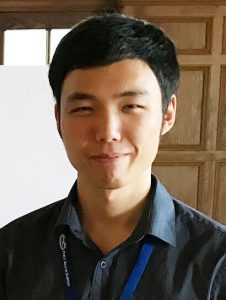John Dou

Data Analyst
What is your area of research or expertise that you bring to the Landscapes collaboration?
I mainly look at environmental and genetic exposures, and their impact on neurological outcomes. A large portion of what I do involves omics data, examining how exposures of interest, including in the prenatal period, impact things like gene expression or DNA methylation. I bring population health methods and perspectives of epidemiology to the Landscapes collaboration, as well as expertise in DNA methylation.
What do you find challenging or exciting about interdisciplinary collaboration?
What I find most exciting is being allowed to study things I would not have had the creativity or knowledge to come up with on my own. Some interesting things I’ve looked at, including things like transcriptomics in sheep as a model organism or examining associations between segregation and methylation age clocks, aren’t things I would have been able to do without interdisciplinary collaboration.
What’s one common misconception about your area of research that you’d like to dispel?
Unfortunately, due to the pandemic, the somewhat amusing common misconception that epidemiology is a skin health profession has been destroyed, but that would have been my answer. Not sure if this is a misconception exactly, but as an alternative to skin care, I’ll note that specific genomic positions can only be methylated or not. However, in our measures we’ll get a range of values, not just 0 or 1 (unless single cell data is involved), which essentially are an aggregate across the cells in a sample. Thus, issues of cell type composition and tissue specificity come into play. Especially when we abstract even further into poly-methylation scores or methylation age clocks, it can be easy to lose sight of where exactly numbers came from.
How did you become interested in structural racism and health?
Strangely, this may be the result of a set of dominoes starting with my father’s friend giving me the computer game Age of Empires 2 when I was a young child. I played a game with random factions that turned out to be Korea and Japan, which at the time I didn’t even know what Korea or Japan were. The adults remarked I picked oddly fitting foes. The question of why they thought that and the historical campaigns of the game inspired in me a great interest in history, with a cognizance of issues of race, nationality, and religion. In an alternate universe with some slightly different events, I would be studying history instead of health. In studying human health, one will soon learn how disturbingly strongly nearly all of health is associated with socio-economic status, and of the large health disparities that exist by race. Being interested in history, it is natural for me to ask “what events or factors led to the world being the way it is.” I’m looking forward to be working with people who can relate historical contexts and their continuing legacies in the structures of society to health and disparities!
What’s the academic path that brought you to where you are now?
My undergraduate degree was ecology and evolutionary biology. Taking an ecology of infectious diseases class, I learned what epidemiologists were and more importantly, that they existed. This inspired me to pursue an MPH, and for my masters thesis/project I worked with methylation, dipping my toes into the world of (epi)genetic epidemiology, the realm in which I still inhabit.
If you had the opportunity to get one question answered by an omniscient being, what would you ask? (this is meant to be a lighthearted question–we’re trying to get to the heart of what you are most curious about, whether within your field of research or beyond! Feel free to think big!)
I would write a book of various questions, ranging wildly from “where are the locations of all the habitable planets in the galaxy” to “what caused the classic Maya collapse”, then ask the being “what are the answers to all the questions in this book?” If that is cheating and the being has not withdrawn the offer as punishment, then I would ask “is the heat death the ultimate fate of the universe and can humanity avert that fate.” If using “and” is still cheating, well… I guess I would be in big trouble.
Anything else you want to share?
I’m excited to be involved in the Landscapes collaboration!
